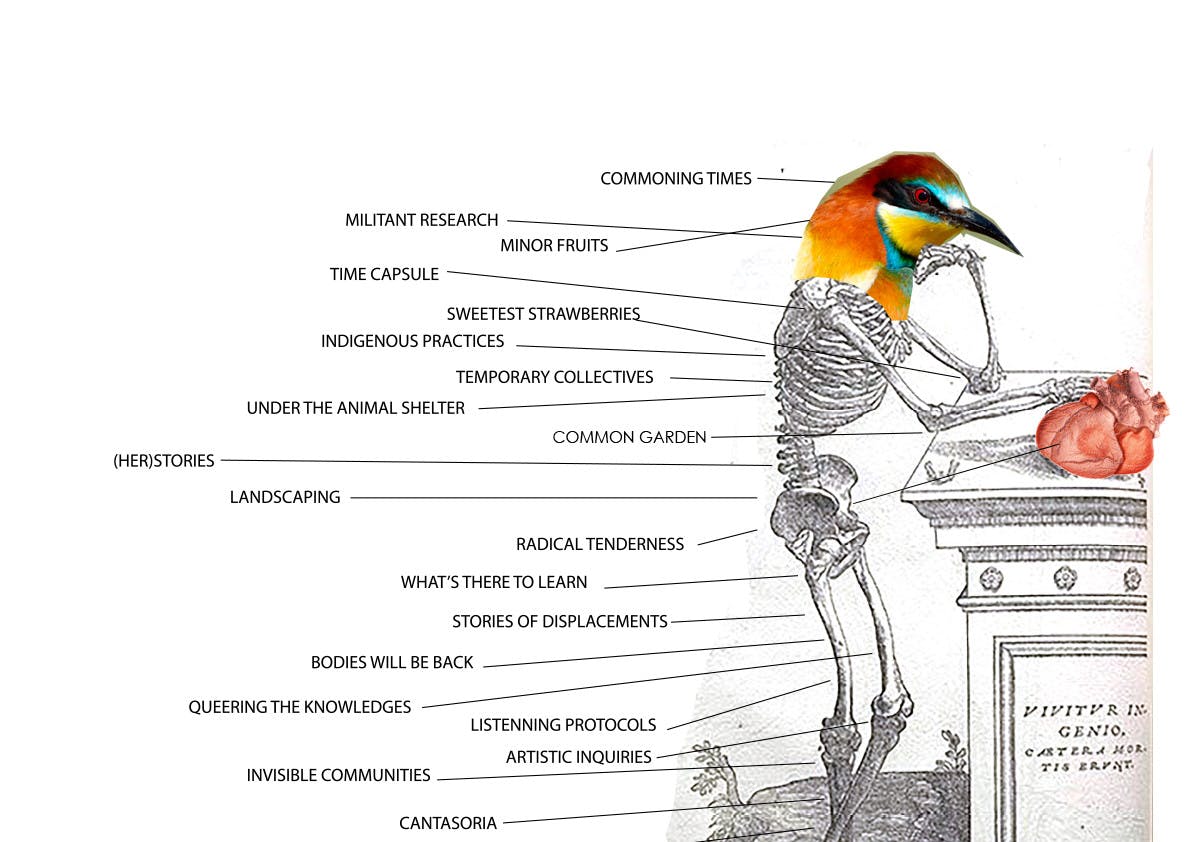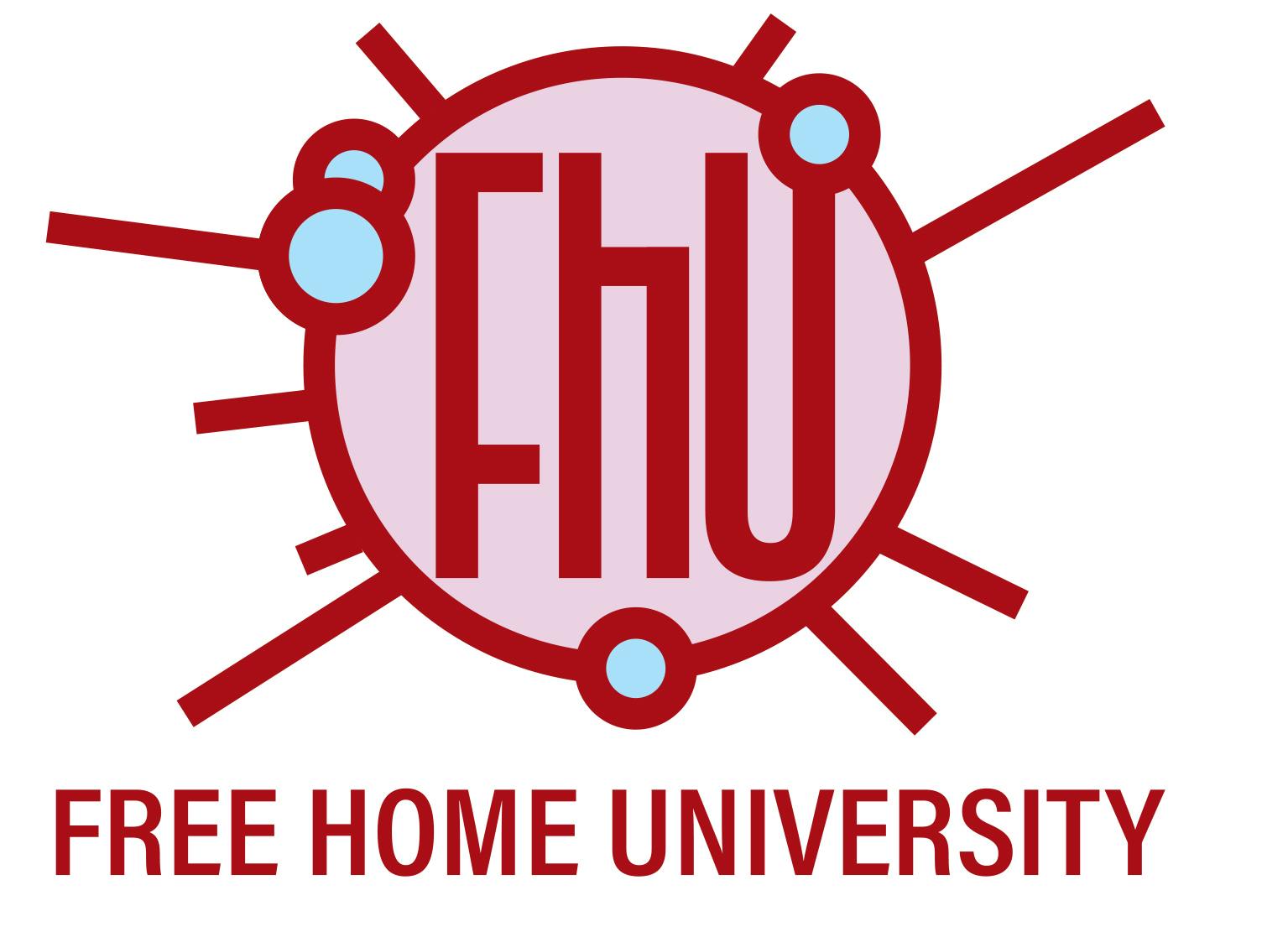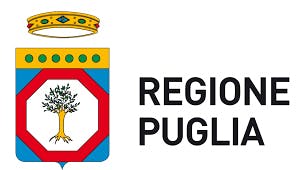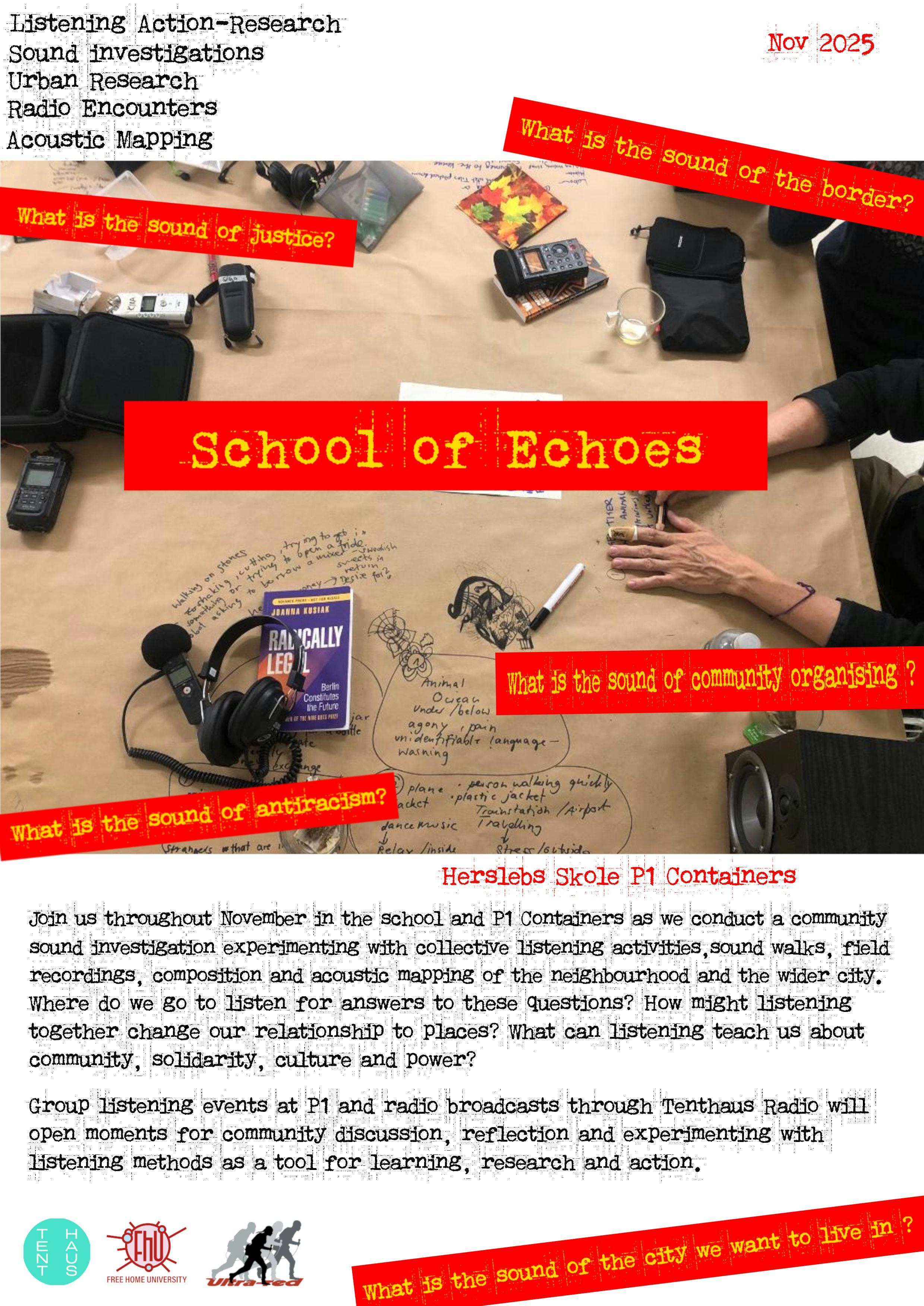M.E.D.U.S.E. || The Beginning
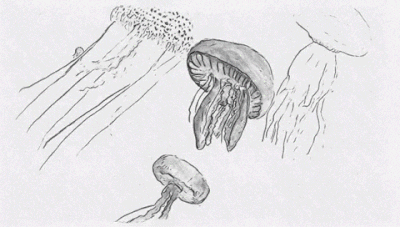
a provisional diary by Free Home University as about to begin something in 7 encounters

The preparation of what we’d like to call an ecofeminist, decolonial, transversal, multispecies, plurivoiced, intergenerational, transterritorial learning space.
A space for our becoming
With the last warm waves washing off the Salento peninsula leaning between the Ionian and the Adriatic seas, a new self-organized ecofeminist formation is hatching, bringing some new waves of life to counter the second wave of the pandemic, and this ongoing raise of wars, fear, and political chaos in which all hopes risk to drawn.
They started to call themselves Meduse, and for a few reasons.
For one, because they have the ambition to give birth to a Mediterranean Eco-feminist Decolonial Union for Self Education, whose acronym perfectly fit meduse, Italian for jelly fishes, those creatures normally considered fastidious by summer colonisers, which they instead workship with admiration. Meduse are indeed very ancient and resilient creatures (some of them immortal by a mechanism of continued mutation and cellular migration), fabulous complex organisms living in an interconnected and symbiotic way with the Sea, who also have inspired some of the most scary and fascinating Myths of all time. How not to be in awe with Medusa, whose hair is made of snakes, and who- out of a spell- had the power to kill with her sight, and who, decapitated with the help of a trick, was able to regenerate herself and transform into many others, including Prometeo who carried the light of the Sun, bringing life to our planet...
The original 3 meduse taking the initiative to lay the foundations of what they hope can become a rhizomatic and tentacular organism in the Mediterrenan basin are: Daniela Festa, a geographer/ jurist, activist and researcher interested in creating institutions of the commons; Romina de Novelis, performer, therapist, and ethnographer focused on the body as a political medium for healing and caring; and Alessandra Pomarico, curator, writer, educator, working at the intersection of art, radical pedagogy and social issues. All of them are deeply rooted in the Mediterranean region, inhabiting a Southern position in the so-called Global North, but also participating in and belonging to translocal struggles, from their homes respectively in Rome, Paris, and New York.
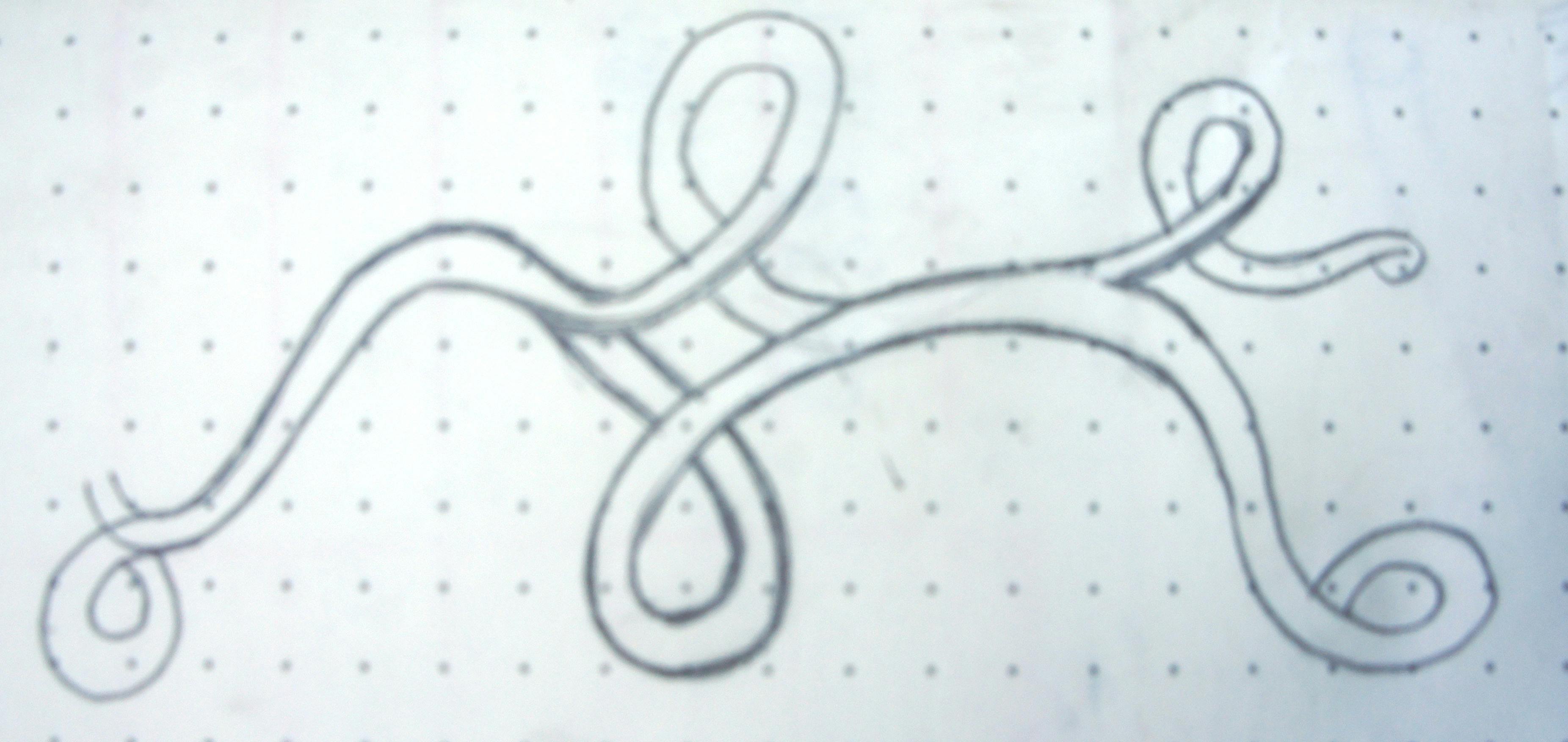
sketching the M.E.D.U.S.E. graphic interpretation
During the summer they have been thinking and sensing, reading and discussing, meeting people and imagining together which shape this school they dream of could take. In September they have been busy convening others, looking for allies, talking to those who have agency and those who support firms of agencements. Finally in October they were ready for a large Assembly, a two days event in which they planned to share their plans, discuss them with others and create a space of encounters so all their contacts and networks could meet. Unfortunately, right when dates approached, Covid-19 safety rules became a ban, their place declared a red zone, travelling from village to village and meeting with more than 6 people, even in the open air, was prohibited.
It went like this that one large meeting, the assembly of jellyfishes, became many small intimate encounters in small pools: each day each visit, a presentation, a conversation in a garden, on the stopp in a square, drawing many circles, weaving between the networks they are part of, both locally and globally.
Gently and slowly they expanded their tentacles to move the water and embrace others, connecting with those already building spaces of care and attention- with the invitation to co-create their scuoletta, as they called their initiative referring to the self-educational tradition of the ‘escuelitas feministas’ or taking as example the escuelita Zapatista.
In their poetic and prefigurative invitation, they reclaim:
Siamo in molte ad abitare e a muoverci nel Mediterraneo, uno spazio d’incontro e di relazione che vogliamo luogo vivo e pulsante… (Many of us live and move in the Mediterranean, a space for encounters and relations that we want to be a living and pulsating place...
Following the flow of their encounters with some local agencies, communities and people in the Salento area, here is a brief step-by-step report of their “convivial research”, a way to map the territory and women’s struggles , and start a cartography of relations, impulses and desires.
Encounter 1
BLACK RICE, WHITE CHEESE, RED WINE
first intimate triangular medusesque structure table. It always starts from a home, from revising the domestic space which they consider always porous, open and expanded wildly beyond the family. From Domus residency (Rominas ‘s base in Galatina) continuing the tradition of Loop House in San Cesario and the various free HOMES universities, extending toward the sea of Otranto, where Daniela’s terrace hosts human people and birds and winds dancing together.
Here they are discussing, readjusting their plans due to Covid restrictions, preparing for small meetings in situ, and larger one within an online community. They discuss not only what, but especially How and with Whom...as their daughters, partners, dogs and collaborators roam around, and under the auspices of their courageous ancestors, the rebellious tarantate of Galatina.
Encounter 2
Reclaiming places \ enlivening premises
The group met in Melpignano (historically, a progressive and leftest village in the area) with Valentina Avantaggiato, the newly elected mayor and her team of women part of the new government they created. Together they discussed what it means and how to include an ecological and feminist approach in the everyday and at the level of the instuturions, what are the local struggle with patriarchal structures, how they have been internalized also by many women, but also how in this village most political fights were lead by women occupying the city hall. They exchanged around what it means to live and work in the South, the challenges of sexism and uneven power dynamics in the family and at the workplace, but also about solidarity, sisterhood, the engagement against violence on the body and on the land, the importance to reclaim and protect the commons, to support a healthy, just and ecological food production, and the central role of women in the local initiatives for social transformation. Following the conversations, a visit was offered to the beautiful Palazzo Marchesale, a building catalysing dreams about food and arts festivals, after school programs for young students and possibly hosting sessions and seminars of the scuoletta.
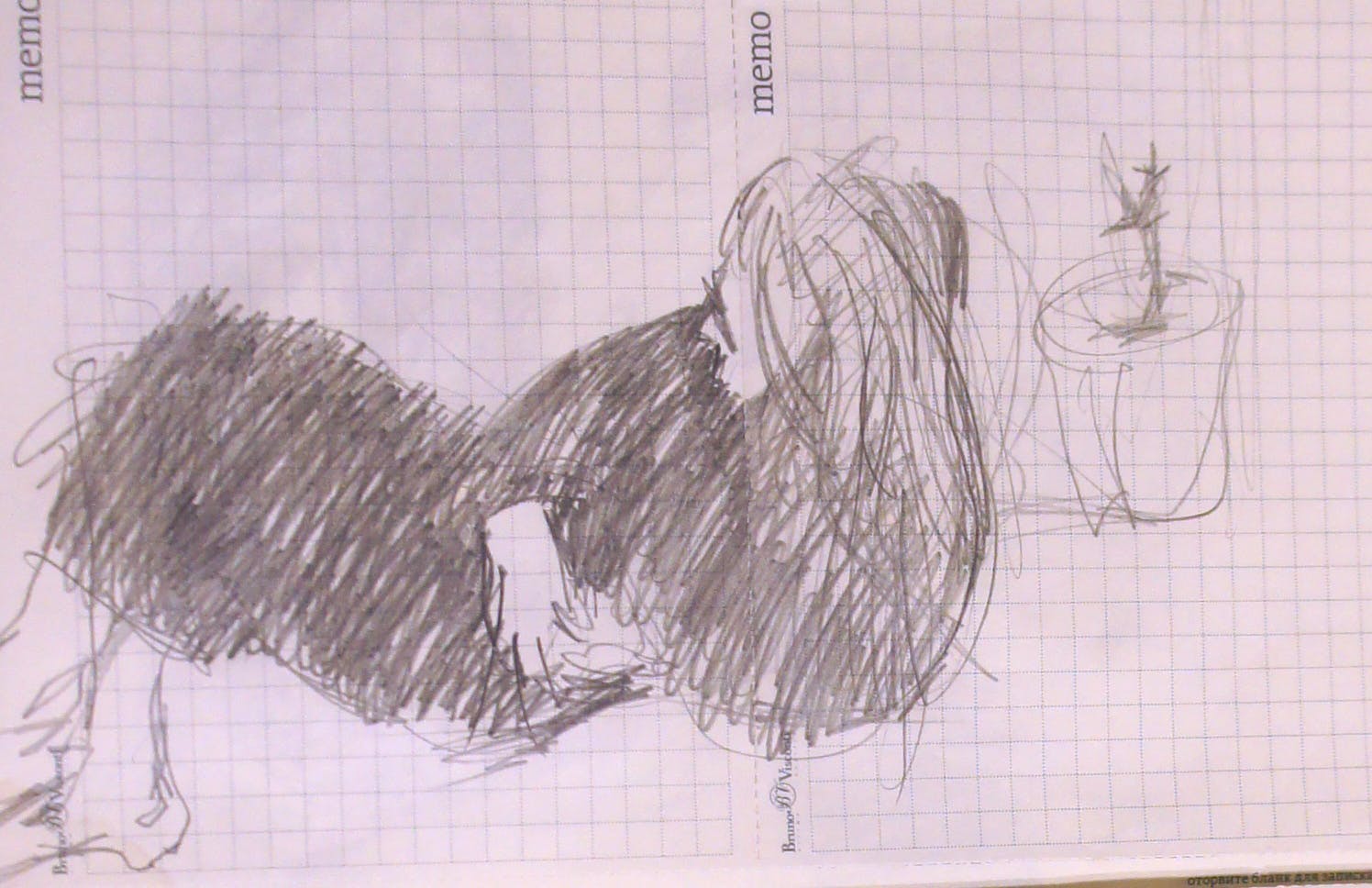
FULL MOON CONGRESS
Encounter 3
ROOFTOPS CONVERSATIONS \ a FULL MOON CONGRESS
After meeting with Valentina, many questions and ideas were raised and there was a need to reclaim, discuss and unfold certain words, intentions and strategies. What does it mean to gesture toward decoloniality in a country that rarely reflects on its own colonial history? How racist patriarchal capitalism takes shape in this territory? How to listen to anc connect with local and contextual experience, also bringing voices from other places? The three medusas set out for another call, and a circle was created on a beautiful rooftop of Lecce’s old city center, under a full moon and a cobalto sky, among cacti and warm lime stones, with curator Judith Wielander (co-founder of Visible project, interested in art that produces social change, who recently moved to Lecce), artist Illaria Lupo, whose artistic inquiries intersect political ecology and social movement (currently working on the private archives of Ilva’s workers in Taranto) and scholar and activist Katia Lotteria who generously shared with them the political orientation, campaigns and activities elaborated in the past 10 years by Casa delle Donne, the organization she currently serves as president.
Encounter 4
In the HOUSE of WOMEN
Meduse paid a visit to Casa delle Donne, Lecce @ Officine Ergot, during their weekly collective meeting. The group hosted them warmly and made space to hear about the scuoletta femminista, which was welcomed with interest and enthusiasm. A new subgroup was formed in Casa delle Donne, interested in ecofeminism theories and practices, organizing seeds exchange and debates around the food cycle. Another wonderful exchange of the night was with Ada from the Women’s Association from the Mediterrenean Region/ Associazione di Donne della Regione Mediterranea/ AWMR Italia. Meduse are happy to find in Lecce such rich waters and so many comrades to be in dialogue with!

Madalene starts the ceremony of planting the fig trees in the garden of Lac'o'Lemon foundation (San Cesario, Salento) with the House of Women, Lecce
Encounter 5
ROOTS
Later that night, to honor those who came before us and who will follow us, a delegation of Meduse went to visit Lac o Lemon, an artistic temporary ‘commune’ that took roots in a beautiful country house just outside of Lecce. Here, with some members of Lu Cafausu group, we took part to The Celebration of the Living who reflect upon death (La Festa dei Vivi che riflettono sulla morte) a sort of ritualistic happening that is organized by the group every November 2nd, for the Day of the Deads, and which this year in the midst of a pandemic, was particularly moving. During the day, they had planted some of the many local varieties of fig trees, more than 99 apparently. After dinner, with the help of a foggy night, a bright moon and small candles, we gathered around them, dedicating their life to an alive or dead being whose memory we felt calling. We proceeded each choosing one particular tree, sharing our own invocation/ dedication, the sound of a flute marking the rhythm of our naming and sharing. A few trees were encircled by all of us, and we went around creating a more collective dedication. Personal and collective presences made this moment both intimate and political. The names of someone’s grandmother or grandchild were wishperd together with the one of George Floyd, David Graeber and other teachers who recently passed, and whose passing marked our process of coming together. Donna Haraway comes to mind and her invitation “to live and die well together”.
Once again a strong feeling of the necessity of rituals, to reinforce and foster our relationships, with the human and the more than human, with land, and ancestors as those in other cosmoganies would say. In the West we lost ways in which our spirituality can be collectively expressed, as we can not trust any institutions of religion. Can we then create or own ceremonies?
The night was full of roots connecting in the soil, our foot retracing common and ancient paths, the land connecting with the sky through small water pearls. Us impermanely vibrating in between.
Encounter 6
The BAPTISM of the SALTY WATERS
They proceeded to embrace and even enjoy the slowness and the depth of these small, safe encounters, marking our week, bringing each day a new gift. Sunday arrived, the sun still so warm and the sea so inviting, a picnic was organized at the beach of Otranto, under the auspicious Madonna dell’Alto protecting the beautiful bay. Daniela, half cyborg Venus half Medusa, immersed in the Mediterrenean, officially and fully owning the name of the fluctuating creatures, by breaking the waves. Back to her home in the old town, on the terrace where meduse hope to host soon more people, ideas and parties, souls got very close in discussing real politics, and the need to exit from it... reports were shared from the different localities of those reunited, Russia, France, different parts of Italy, and Germany- as glitter sparkle out of a fish with many legs, and a chihuahua nested in someone’s hands. A strong desire of being together, closer, connected (not on zoom) was affirmed and reclaimed.
Encounter 7
PLANTING the CUNT-TREES*
Still resonating with those young fig trees planted in the garden of our friends, thinking of what it mean to create (artistic) communities and forms of coexistence (beyond the art world) Meduse came to think that the garden of Lu Cafausu was the place where they should reunite again with the ecofeminist group of casa delle Donne. A way to celebrate the birth of their initiative and these new alliances coming together was to contribute to the garden!
Planting trees nowadays is maybe the most responsible act, the only response (a response-ability with Haraway again) in a time of ecological catastrophe... a gesture to reverse the necrophiliac logic of the current system, opposing it with a politics of care and a practice of regenerating places, relationships and forms of lives.
They came back to fondazione Lac o Le Mon with a group of 20 women, a few men supporting, a dog and a little girl that would end up making music for the celebration. They came to plant another fig tree, bearing black fruits, and an ancient local tree, almost disappearing, called fejoia that produces small green fruits tasting almost like gujava. In Italian the name of trees are generally masculine, as it is the case also for the fico but this one was immediately made female and addressed as fica which, in spoken Italian also signifies the vagina, which the sensual and erotic shape of the fruit obviuosly recalls. Reclaiming our vernacular sources and dialect(ics), the group set up for a collective sawing of the land, each contributing suggestions and harms. The fig tree was named Vittoria-Lea, to honor the deceased mother of one woman, whose birthday would have been that day, and to remember Lea Vergine, who passed away recently. Her curatorial practice and work as art critique contributed greatly to build space for women artists at a time when art was predominantly male-centered ( so much is still to do). The feijoa tree was dedicated to Flora and to Luciana.
After digging, planting and watering, around a nice potluck lunch, we talked at length and so much convergence seemed to emerge. Cesare and Yacopo explained about the project of Lac o lemon, showing that various installations produced in the garden, while Romina, Alessandra and Daniela explained more how they see a little feminist school ( maybe on a tree) could take root in this region. Questions on how to continue started to become more and more present. Someone proposed to make an edible garden here, and to keep taking care of the plants; someone was already planning the next brunch in Galatina to start designing the school and discuss a plan. Unfortunately that very afternoon the news arrived that Puglia became an ‘orange zone’ in the map authorities designed to contain the spread of Covid 19: going from one village to the other would be prohibited. Gathering in person even in open spaces would be more and more difficult if not impossible.
Meduse will need to find ways to connect their tentacles across and through the distance.
To be continued...
